

Our Schools
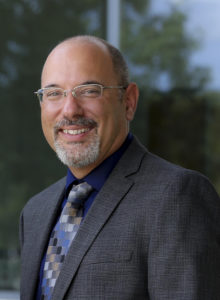
In 2022, TCOM was named the top osteopathic medical school in the nation for primary care by U.S. News & World Report. More than 60% of TCOM graduates practice primary care medicine, helping reduce the shortage of physicians in our Texas communities. Many others successfully practice in specialty careers ranging from aerospace medicine to cardiovascular surgery.
From the first semester, students in the Doctor of Osteopathic Medicine degree program are placed in one of our primary care clinics to directly experience community health care and related issues. Students will continue the clinical phase of their medical education with core rotations
in internal medicine, surgery, pediatrics, obstetrics and gynecology, family medicine, psychiatry, emergency medicine and geriatrics.
TCOM excels through its innovative medical school curriculum, cutting-edge research, quality patient care and outstanding student performance in both the classroom and in the clinics. Whether they are the only doctor serving a rural community or a specialist at a major medical center, TCOM graduates distinguish themselves as clinical leaders, teachers and scholars.
“Philanthropy creates an opportunity for our school to partner with donors around shared purpose and vision, and engaging donors to become an integral part of the many solutions we need to bring forward to improve health care delivery in our country. These partnerships and shared initiatives that are so important to both the school and donors are crucial to the success of any medical school and the community we serve. It brings deep meaning to what we do.”
Dean Filipetto, TCOM
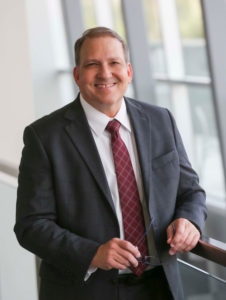 CBTS takes great pride in shaping the future of the biomedical workforce through innovative degree programs. Our students are tomorrow’s educators, researchers and health care professionals. The graduate programs in CBTS include traditional dissertation and thesis-based research degrees, applied master’s degrees in biotechnology and clinical research management, and a specialized master’s degree that prepares students for careers in science or professional medical programs.
CBTS takes great pride in shaping the future of the biomedical workforce through innovative degree programs. Our students are tomorrow’s educators, researchers and health care professionals. The graduate programs in CBTS include traditional dissertation and thesis-based research degrees, applied master’s degrees in biotechnology and clinical research management, and a specialized master’s degree that prepares students for careers in science or professional medical programs.
Our online bachelor’s degree in biomedical sciences is the first undergraduate program to be offered at HSC. We offer a core curriculum centered on providing the foundational knowledge for students in a variety of career opportunities, such as academic or industry research, government and regulatory affairs and many other scientific fields, with many elective course options tailored to our students’ academic journeys and goals. This innovative program requires 60 earned, transferred credit hours from an accredited undergraduate institution and is centered on biomedical principles directed toward understanding health and disease. Students enrolled in the program will gain extensive knowledge of applied human biology, including biochemistry, anatomy, physiology and microbiology. The program also prepares students for admission to an advanced graduate degree or professional health care programs, such as medical, dental, veterinary and pharmacy schools.
“To me, philanthropy goes beyond a meaningful contribution whose effect is transitory; it is a conscious decision to plant the seeds of a future that flourishes. In the College of Biomedical and Translational Sciences, donors are investing in our current and future students, who will become a diverse body of researchers, educators and health care professionals. Their investment ensures that becoming a leader in the scientific community is accessible to all those with the passion and curiosity to pursue it.”
Dean Mathis, CBTS
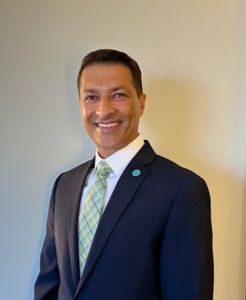 The CPH creates solutions for a healthier community. Our work is at the intersection of science and social justice, promoting health equity to reduce health disparities.
The CPH creates solutions for a healthier community. Our work is at the intersection of science and social justice, promoting health equity to reduce health disparities.
The Master of Public Health and Master of Health Administration degrees are offered on campus and fully online. Master of Science and Ph.D. programs are full time. Certificate and dual-degree programs have online options.
Key research areas include: alcohol, tobacco and other drug use; health disparities; engaging communities through participatory research methods; maternal and child health; immunizations and vaccine hesitancy; health and safety needs of the homeless; online/mHealth interventions; chronic disease epidemiology; and international health interventions.
We are accredited by the Council on Education for Public Health. Our MHA is accredited by the Commission on Accreditation of Healthcare Management Education. We are active in the Association of Schools and Programs of Public Health, Association of University Programs in Health Administration and the American and Texas Public Health Associations.
CPH faculty have been funded by the National Institutes of Health, Centers for Disease Control and Prevention, National Science Foundation and others. Our faculty are widely published and have received national and international awards for their work bridging teaching, research and practice.
“The ethic of giving reflects one of the core values of our university – Serve Others First. When we give of our time, knowledge and resources to help improve the quality and conditions of life in our communities, we have an incredible opportunity to help build a healthier society for North Texas, our state, our country and the world. Please join us to transform lives and make our world a better place for all!”
Dean Dharamsi, CPH
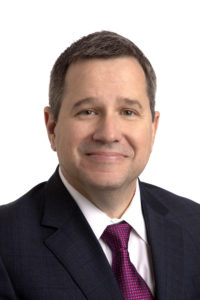 Through the Department of Physician Assistant Studies and the Department of Physical Therapy, the College of Health Professions delivers the knowledge, attitudes and skills necessary to serve in the health care professions. CHP also offers current health care professionals the opportunity to further their career development.
Through the Department of Physician Assistant Studies and the Department of Physical Therapy, the College of Health Professions delivers the knowledge, attitudes and skills necessary to serve in the health care professions. CHP also offers current health care professionals the opportunity to further their career development.
Careers as either a physician assistant or a physical therapist are among the most rewarding and in-demand of all the health care professions. Individuals serving in these positions have challenging and satisfying careers while enjoying considerable flexibility in their choice of practice and working conditions. Classes in both the PT and PA programs include experiences designed to prepare students to be contributing members of an interprofessional health care team.
The Department of Lifestyle Health Sciences offers a Master of Science in Lifestyle Health Sciences and Coaching. This innovative online program is designed to provide the knowledge, skills and tools needed to effectively address health behaviors and become a credentialed health and wellness coach with a specialization in lifestyle medicine. The foundational competencies covered will complement other HSC health professions programs as well as help those pursuing careers in the rewarding and growing field of health and wellness coaching.
“Philanthropy is an investment of time, talents and resources that you give of yourself to contribute to your vision for the good you would like to see in the world. In the College of Health Professions, these contributions are critical to the transformative work that happens in our students and community. Whether you are giving of your time and knowledge by serving as a clinical instructor or preceptor or financially supportive of the mission of FitSteps for Life and ensuring that cancer patients and survivors have the opportunity to incorporate safe, guided exercise on their path to wellness, you are a vital part of the continued positive impact of the College of Health Professions.”
Dean Forister, CHP
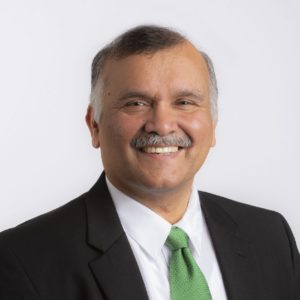 The global vision of the College of Pharmacy is described in the college’s motto: “We make health care better.” The motto reflects the increasing contribution to health care provided by doctors of pharmacy trained in the highly interprofessional and primary care environment
The global vision of the College of Pharmacy is described in the college’s motto: “We make health care better.” The motto reflects the increasing contribution to health care provided by doctors of pharmacy trained in the highly interprofessional and primary care environment
at HSC. The college’s focus is on the patient. Making health care better crucially depends
on improved teamwork of a variety of health care professionals and improved access to patients. Doctors of pharmacy involved in disease and medication management make health care better by increasing safety, improving outcomes and reducing costs. The motto also extends to the contributions that the college’s faculty, postdoctoral associates, graduate students and research staff make to the development of new and more effective therapies for the promotion of health and treatment of disease.
The college is committed to developing patient-centered pharmacy professionals trained in an interprofessional environment focused on optimizing health through discovery.
“Philanthropy has always been important to universities like ours because it is an indication of how our values and purpose are closely aligned with those in our community who are also committed to strengthening educational opportunities and helping to resolve societal challenges though innovation. It is a partnership with donors in which promises of change for the betterment of people’s lives come together, get accomplished and are sustained.”
Dean Madhavan, College of Pharmacy


Social media